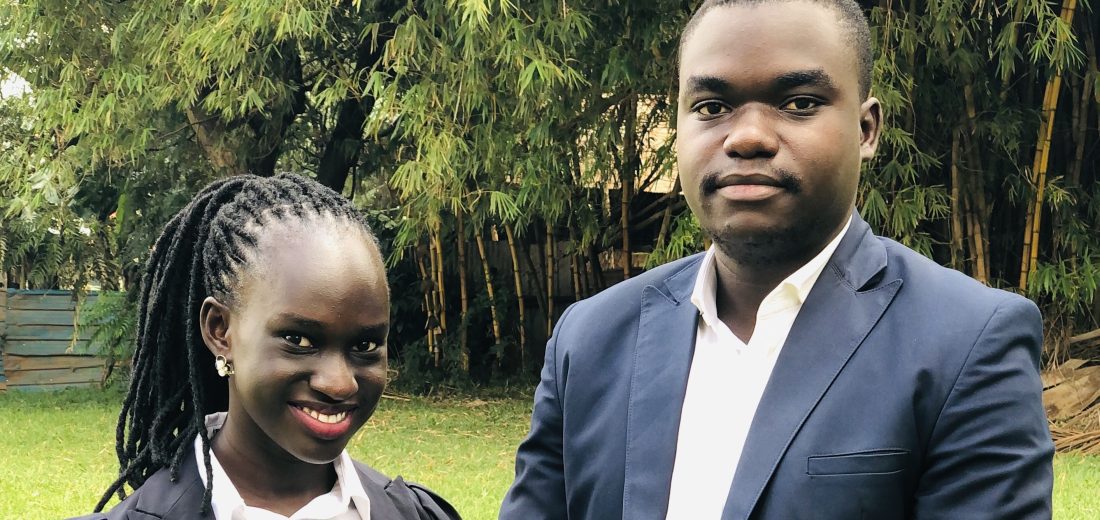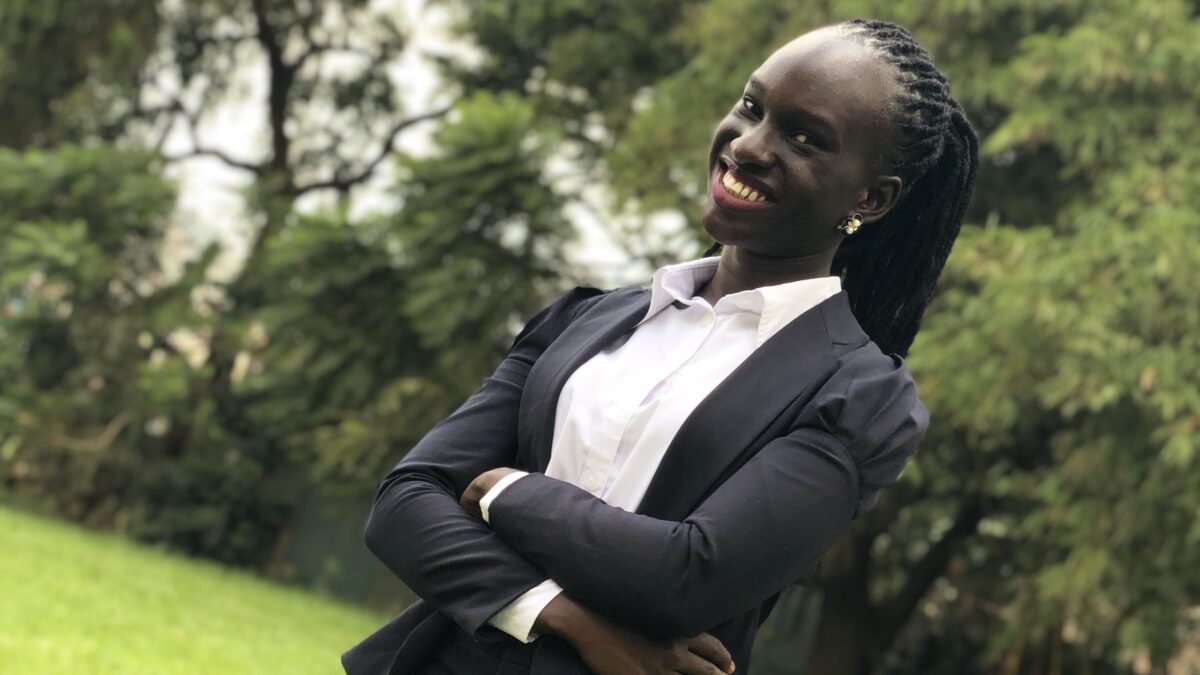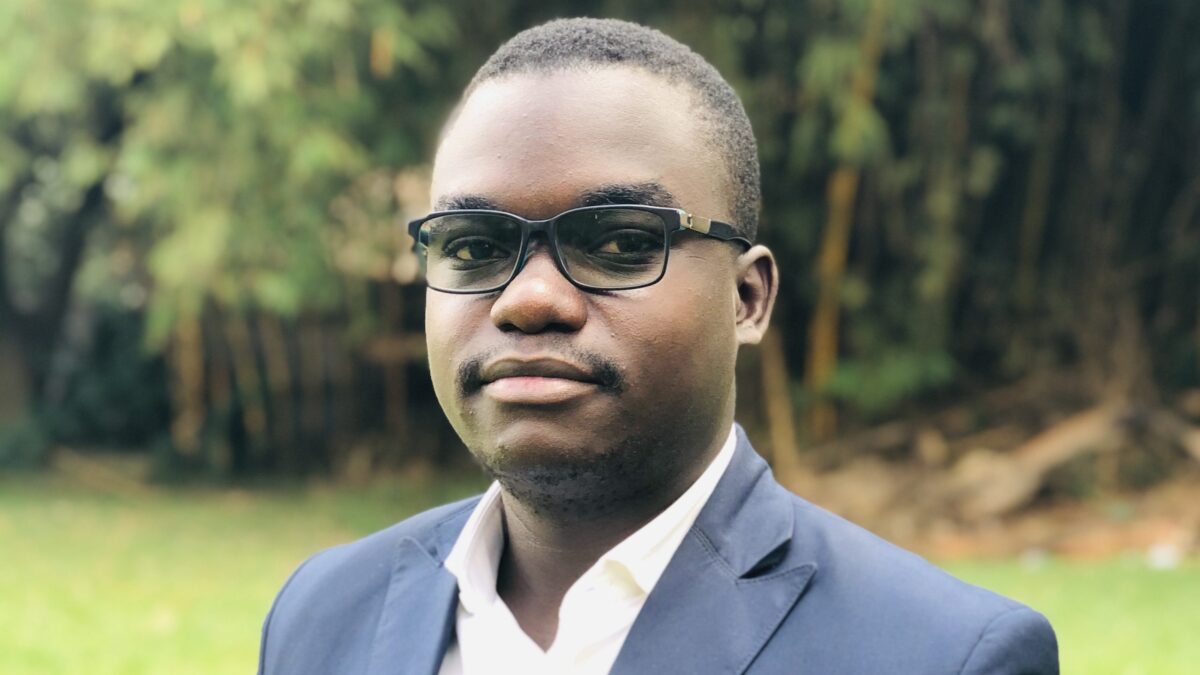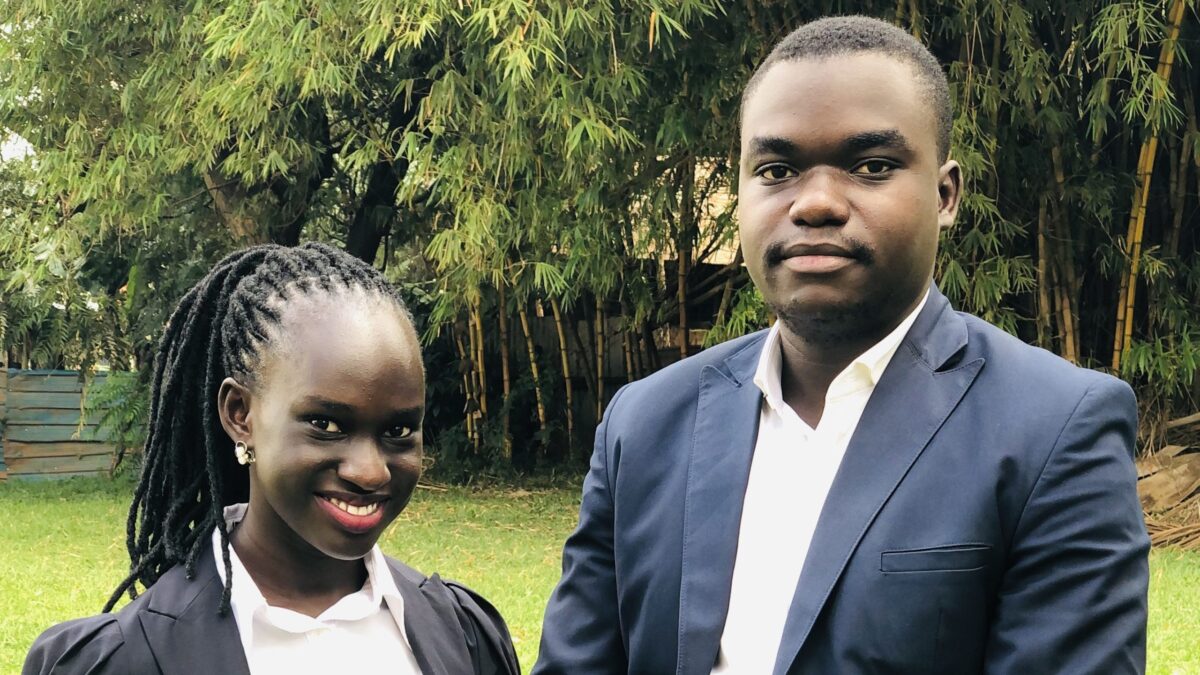
While the world health organization estimates that nearly one billion people are suffering from mental health disorders globally, in Uganda it is still considered a foreign concept. Yet, millions of its youth are suffering silently due to its effects. This is the misconception that Novy and Patrick, trained lawyers, want to clear up.
Classmates at the prestigious Makerere University School of Law, Novy Norin Acen (24) and Patrick Onyait (25) were really not that close as friends. Towards their graduation, however, the two became closer due to their love for mental health advocacy. After their graduation, they decided to form the Mind Watch Foundation, an organization that hopes to avail long-lasting solutions to people with mental health challenges by creating awareness, advocacy, and providing mental health services, among others.
Growing up, Novy was treated differently from her twin sister. She was labeled ‘the black sheep of the family by her biological mother.
“One day, my mum even called me a snake in her house,” Novy painfully narrates.

This happened after she tried connecting with her biological father, her parents having separated when she was young. Her mother did not take this well, something that still puzzles her up to now. As a young girl she felt betrayed when her mother, a person she thought understood her, let her down by resorting to name calling. Consequently, she struggled to eat and was depressed for several weeks. At one point, the thought of suicide actually crossed her mind. As a born-again Christian though, she turned to God and read the Bible to overcome the challenges she was facing at home.
The Silent Pandemic
According to the latest United Nations (UN) data, The World Health Organization (WHO) estimates that about one billion people globally are suffering from some form of mental disorder. In Uganda, recent government reports have shown that about twelve million people are struggling with such disorders.
“I think the figures are twice what the government is reporting. The twelve million people might only be the youth,” states Patrick Onyait, the CEO and co-founder of Mind Watch Foundation.
“Personally, I have contemplated self-harm a number of times because of depression.”
He recalls of an incident that happened while he was in his first year at Law School when he was struggling academically, financially, and socially. He became depressed and felt that his life had become meaningless, having never been in such a state before. After a long fight with himself, and with nowhere to run, he turned to his mother for help. His mother simply told to him to be a man and be strong. Men were supposed to be strong, not weak!

Patrick and Novy affirm that they chose to focus on mental health, not only because of their past struggles but due to the fact that poor mental health is one of the silent pandemics people are struggling with.
“In Uganda, people who try to come out and talk about their struggles are labeled pretenders and attention seekers. Challenges like depression are seen as ‘things of the white man’,” Patrick says.
A mental health challenge is something that anyone can get affected by, yet very few people are aware of this. Besides, many families can’t afford the high costs of treatment involved.
“In my country, a patient will only be taken to Butabika Hospital, the biggest government facility for persons with mental disorders, when their situation worsens,” says Novy.
Causes of Increased Cases
Several factors have caused the rise in mental health challenges among Ugandans, especially the youth, with the family unit being identified as one. Many youths, like Novy, withdraw when they feel they are not being treated right. The school environment is also another notorious place that takes a toll on their mental health. This will then lead to depression, use of drugs, and joining bad peers. Other factors cited are failed/broken relationships, drugs and substance abuse, as well as sexual abuse.
Through their organization, the duo hopes to address this issue. They believe the first thing that needs to be done, is for everyone to be involved in addressing it. Most importantly, more awareness needs to be done in schools, communities, homes, and workplaces. This should be aimed at ensuring that the masses understand what mental health is and what mental health challenges are. Spaces should also be provided for young people to freely talk about things they might be going through, which might have an effect on their mental health. More community counselors should also be trained to help them.
Their organization is addressing the problem, from a grassroots approach, by spreading awareness about mental health, providing spaces for young people to talk about it, and providing counseling and therapy services free of charge.

They admit that they have encountered a number of challenges in their work. First is the issue of opening up, out of fear of being judged. Nonetheless, they have learned that it takes a lot of patience to win a client’s trust. Another big challenge is funding. Most of their activities have been funded by volunteers who equally have other responsibilities to take care of. This has stalled some of their intended activities, like school visits, whose aim is to raise awareness on mental health challenges, among other things.
Nevertheless, they are not about to stop advocating for better mental health among the youth.
“To the young people out there, it’s okay to seek help, regardless of gender, because it does not discriminate. There are people out there, like Patrick and I, who are willing to stand with you,” concludes Novy.
-
Liana
31.05.2023thanks for info

Leave a Reply